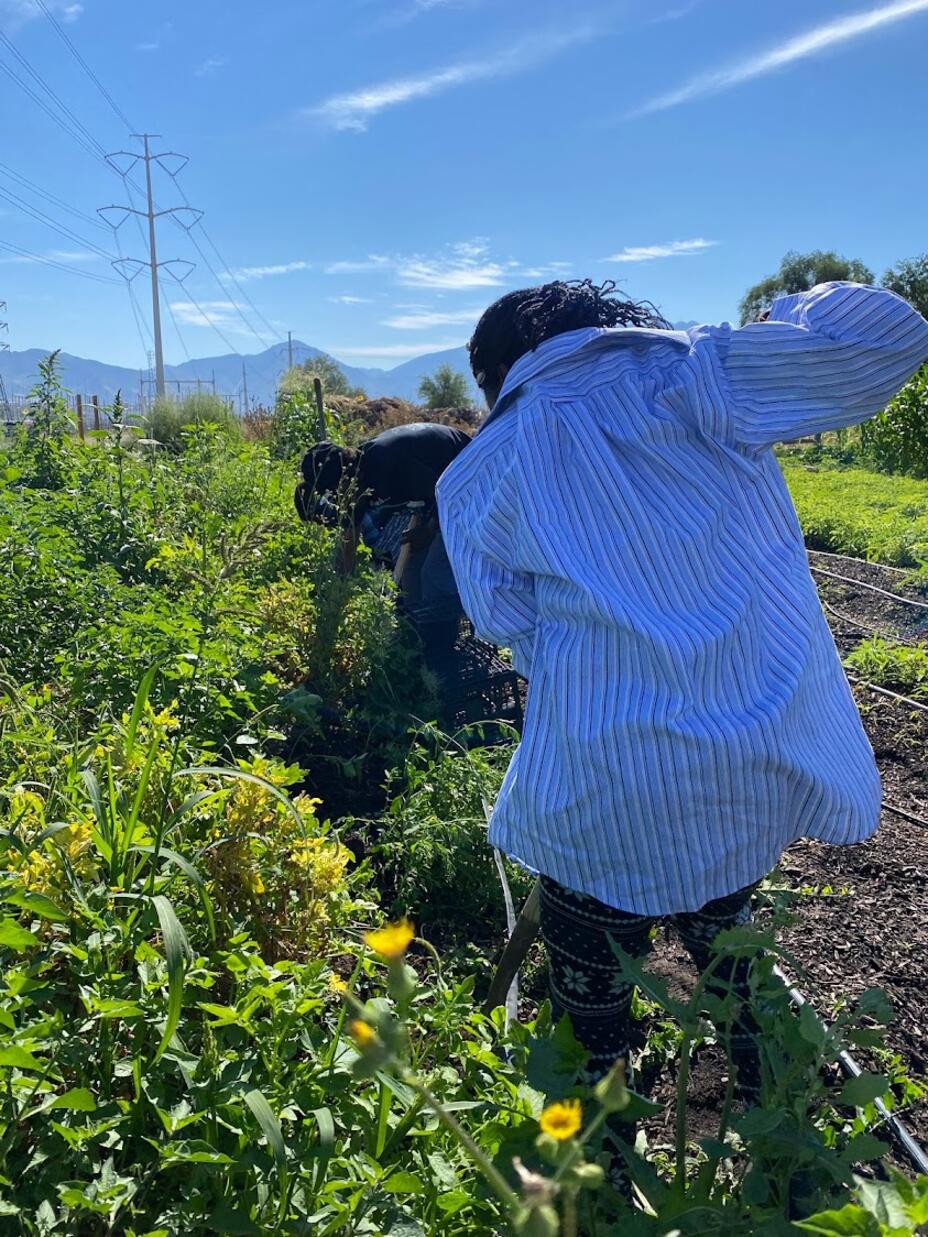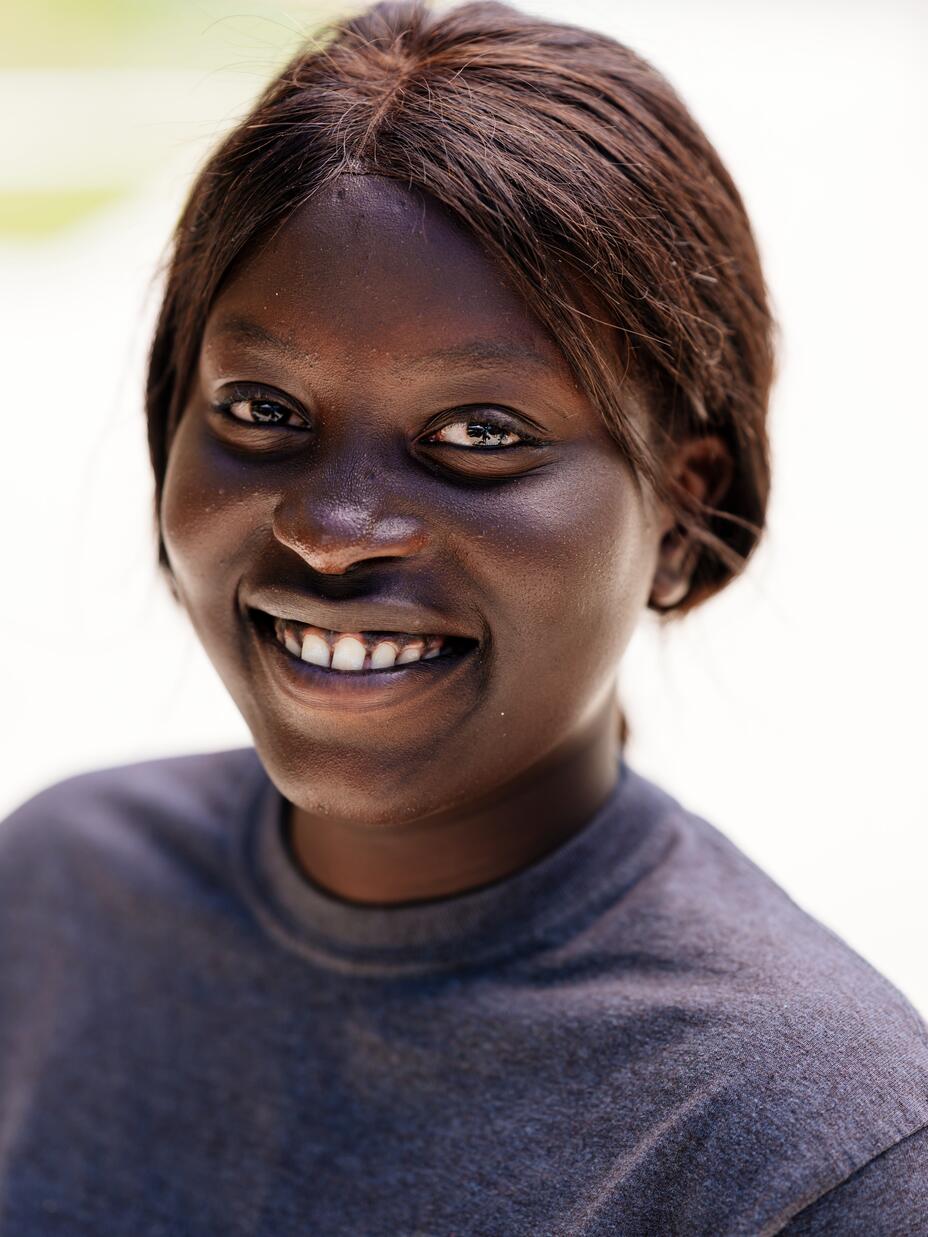From April to October this year, the International Rescue Committee (IRC) in Salt Lake City worked to navigate a new area of programming: Youth Agriculture Livestock and Leadership, or the YALL program. As a part of New Roots, YALL is tailored to refugee and new American youth with a focus on skill building and engaging in discussion on various topics in physical spaces not usually seen as a classroom: at an urban farm site, in a community garden, surrounded by goats, or on a mountain trail.
“The goal of YALL is to provide refugee and new American youth with opportunities to learn skills pertaining to agriculture, food justice, livestock, and leadership while having fun and making a positive impact on their community and local food system,” said Vy Ho, youth agriculture specialist.

The program consisted of gathering to work on gardens and attending agricultural lessons at the New Roots Redwood Farm and other locations around Salt Lake County. Some of these lessons included food justice, team building, and leadership development. On the weekends, the YALL team sold produce grown in their dedicated garden plots at the Sunnyvale Farmers Market in addition to helping run the Food Pantry and SNAP/EBT booth. YALL youth also had the chance to participate in the 4-H refugee goat club, a community partner-led program.
Through the duration of the program, Vy was able to see an expressed enthusiasm from the group of youth for volunteering in the community, particularly around food insecurity. Joyce was one of the students who was impacted by the group's community projects. “These types of projects really opened my eyes to the needs in the community,” said Joyce. People from refugee and immigrant backgrounds arrive to the U.S. with limited access to common ingredients, especially fruits and vegetables, found in their home country. Joyce and her peers worked to grow produce that invited members from other cultures to share in food comradery.
A freshman at Utah Valley University, Joyce participated with her younger brothers in YALL this summer. She is going to school for computer science, hoping to find solutions for farming issues through technology. Joyce’s time in the YALL program offered her the chance to learn new things while discovering more about her own heritage. Originally from Egypt, Joyce recognized some African plants such as okra, roselle, and hydnora africana. By learning about how to grow a variety of produce, Joyce felt connected to her own culture and traditions.

“Our group really felt like family by the end of the summer,” said Joyce. “I was able to make friends that will last a long time.”
Group members connected through field trips that would happen one to two times a week. Whether it was cooking and making food together, or going for a hike and hammocking outside, the participants made real connections with each other. They also gained invaluable skills in agriculture, marketing and leadership that will support them as they continue with their academic and career pursuits. All students received a stipend for their participation, ensuring they were adequately compensated for their participation.
The New Roots YALL program was founded with generous support from the USDA Community Food Project Grant. This grant enabled the IRC in Salt Lake City to pilot this new area of programming, working with refugee youth to build sustainable agricultural skills, learn about food injustice, increase access to fresh produce within our local community, and tap into other farm and food-based engagement. The YALL program is gearing up to host a new group of students for year two! IRC team members will be spending the winter months to further developing program values, goals, curriculum, and partnership.
Learn how you can support these efforts through the New Roots program in Salt Lake City by visiting NewRootsSLC.org.